Plenary Panels for IEEE CIC/CogMI/TPS
Plenary Panel 1: Generative AI and Large Language Models: Research Impact and Open Challenges
Large language models (LLMs) powered by Generative AI are making unprecedent success in creating innovative transformations from traditional AI. Generative AI algorithms can generate new data, such as text, code, music, images, and audio, based on the massive amount of training data. We have witnessed a growing interest in developing domain-specific foundational models and fine-tuned downstream learning tasks, ranging from AI4Education, AI4software engineering, AI4Healthcare, to AI4Material science, AI4CyberManufacturing, AI4Agriculture, to name a few. This panel brings together distinguished scholars from AI and ML areas, Explainable AI, AI Privacy and AI Ethics areas to discuss the opportunities, challenges, impact and hypes of Generative AI and LLMs technology will have on our research, our education, and our everyday life. The panelists will share their views and debates around a number of questions for panel discussion. Here are some example questions:
- What is your area of research expertise? Can you share your thoughts on how generative AI and LLMs may impact on the way we do research and education in the next 10 years?
- Which industry sectors and academic disciplines will change the way they do business, education, research, or product development? Will such changes good or bad? Can we do anything to influence the research and development of generative AI and LLMs?
- What would be your advice to young researchers working in AI algorithms, AI systems, AI Privacy, AI Ethics, Trustworthy AI, with respect to generative AI and LLMs?
- Are you worried about where the advancement of generative AI and LLMs will be? What are your thoughts on how generative AI and LLMs should be evolving/advancing as a disruptive technology in the next decade?
Panel Moderator
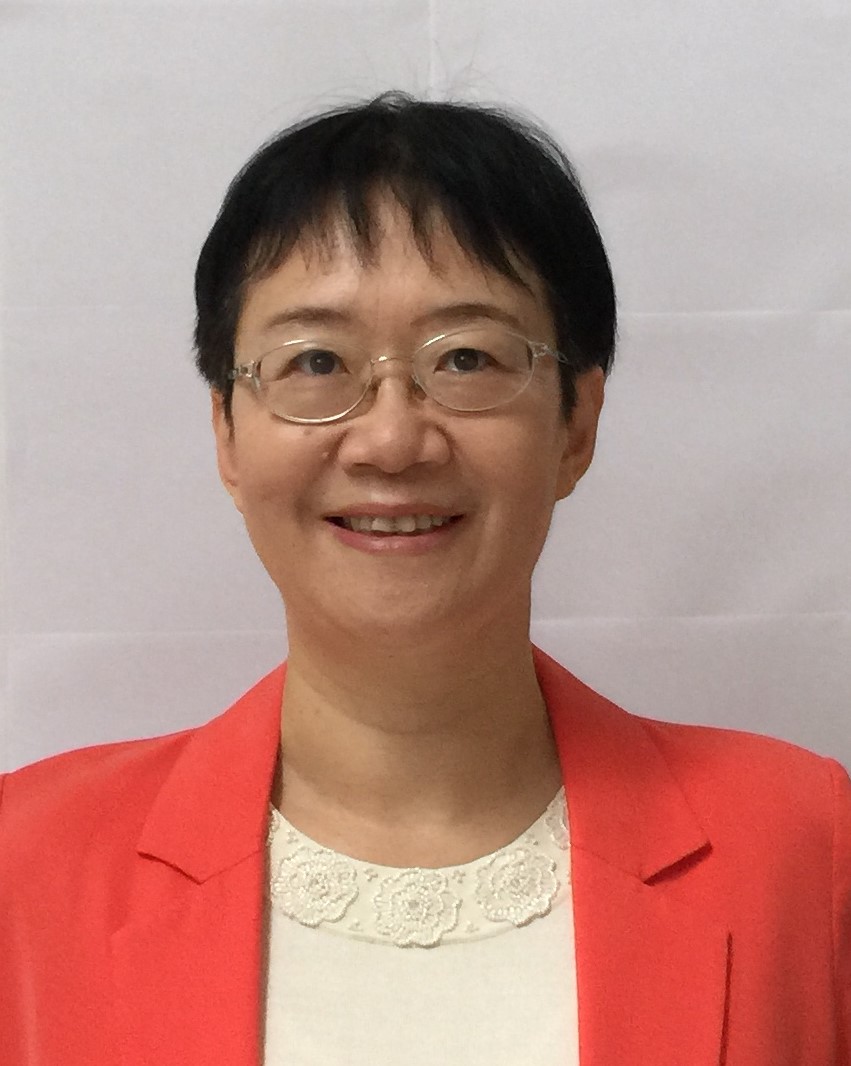
Ling Liu
Georgia Institute of Technology, USABio - Ling Liu is a Professor in the School of Computer Science at Georgia Institute of Technology. She directs the research programs in the Distributed Data Intensive Systems Lab (DiSL), examining various aspects of large scale big data-powered artificial intelligence (AI) systems, and machine learning (ML) algorithms and analytics, including performance, availability, privacy, security and trust. Prof. Liu is an elected IEEE Fellow, a recipient of IEEE Computer Society Technical Achievement Award (2012), and a recipient of the best paper award from numerous top venues, including IEEE ICDCS, WWW, ACM/IEEE CCGrid, IEEE Cloud, IEEE ICWS. Prof. Liu served on editorial board of over a dozen international journals, including the editor in chief of IEEE Transactions on Service Computing (2013-2016), and the editor in chief of ACM Transactions on Internet Computing (since 2019). Her current research is primarily supported by USA National Science Foundation under CISE programs, IBM and CISCO.
Panelists (Last Names in Alphabetical Order)
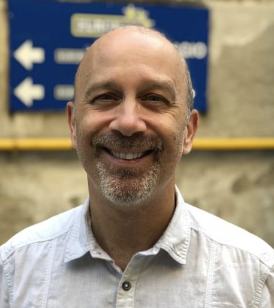
Paolo Boldi
University of Milano, ItalyBio - Paolo Boldi is full Professor at the Università degli Studi di Milano since 2015. His main research topics are algorithms and data structures for big data, web crawling and indexing, graph compression, succinct and quasi-succinct data structures, distributed systems, anonymity and alternative models of computation. Recently, his works focused on problems related to complex networks (especially, the World-Wide Web, social networks and biological networks), a field where his research has also produced software tools used by many people working in the same area. He chaired many important conferences in this sector (e.g., WSDM, WWW, ACM WebScience), and published over one hundred papers; he was also recipient of three Yahoo! Faculty Awards and co-recipient of a Google Focused Award, and member of many EU research projects. He was keynote speaker at many conferences such as ECIR, SPIRE, MFCS, IIR and invited scholar at the Institut des Hautes Études Scientifiques.

Mark Riedl
Georgia Institute of Technology, USABio - Mark Riedl is a Professor in the Georgia Tech School of Interactive Computing and Associate Director of the Georgia Tech Machine Learning Center. Dr. Riedl’s research focuses on human-centered artificial intelligence—the development of artificial intelligence and machine learning technologies that understand and interact with human users in more natural ways. Dr. Riedl’s recent work has focused on reinforcement learning from human feedback, story understanding and generation, computational creativity, explainable AI, and teaching virtual agents to behave safely. His research is supported by the NSF, DARPA, ONR, the U.S. Army, U.S. Health and Human Services, Disney, Google, Meta, and Amazon. He is the recipient of a DARPA Young Faculty Award and an NSF CAREER Award.

Norman Sadeh
Carnegie Mellon University, USABio - Norman Sadeh is a Professor in the School of Computer Science at Carnegie Mellon University (CMU). He co-founded and co-directs CMU’s Privacy Engineering Program, and also co-founded and for ten years co-directed CMU’s PhD Program in Societal Computing. Norman served as lead principal investigator on two of the largest domestic research projects in privacy, the Usable Privacy Policy Project (https://usableprivacy.org) and the Personalized Privacy Assistant Project (https://privacyassistant.org). He was also founding CEO and, until its acquisition by Proofpoint, chairman and chief scientist of Wombat Security Technologies, a company that defined the multi-billion dollar user-oriented cybersecurity market. Technologies Norman developed with colleagues at CMU and Wombat are used to protect tens of millions of users around the world against cybersecurity attacks such as phishing. Dr. Sadeh's privacy research has been credited with influencing the development of privacy-enhancing solutions at companies such as Apple, Google and Facebook, and results of his research have informed activities at regulatory agencies, including the Federal Trade Commission and the California Office of the Attorney General. In the late nineties Norman also served as Chief Scientist of the EUR 550 million European Union's e-Commerce initiative, which included all pan-European research in cybersecurity and privacy as well as contributions to several major European public policy initiatives.
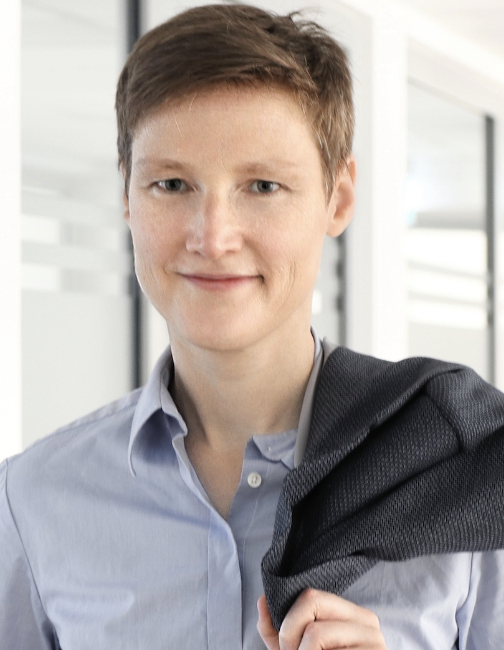
Christin Seifert
University of Marburg, GermanyBio - Christin Seifert holds the chair for Artificial Intelligence at the University of Marburg, Germany. She is a member of the board of directors of the Hessian Center for Artificial Intelligence, and member of the German Computer Society, chapters for Information Retrieval and Data Science. Previous positions include professorships at the University of Duisburg-Essen, Germany, the University of Twente, Netherlands, and the University of Passau, Germany. She has co-authored more than 120 publications in the area of machine learning, information retrieval, natural language processing and data science.
Plenary Panel 2: AI Impact and Challenges in Industry and Government
The age of AI is here. And the recent trend of Generative AI adoption is generating huge expectations as to how it will transform processes in Industry and Government as well as significant concerns related to its trustworthiness, ethical and regulatory compliance, and intended or unintended consequences to the society-at-large. Further, there is an AI race among nations as well as among industries that is creating an unstoppable momentum in the development and deployment of AI solutions across the board, possibly without appropriate safeguards and ethical boundaries defined. The Blueprint for an AI Bill of Rights recognizes the need to understand the threats that the use of AI along with other associated technologies, data and automated systems may pose to democratic institutions and our global society. At the same time, it is undeniable that the rise of AI is an inflection point in human history and with appropriate measure AI can enable opportunities that have been unimaginable, from assisting in scientific discoveries, and technological innovations to solving problems that have huge societal impact. This panel brings together distinguished researchers and practitioners from industry and government to discuss impacts, pain points and opportunities AI brings, as well as potential synergies or lack thereof between the AI research, development and adoption in Industry, and Government sectors. The panelists will share their views around the following key points for panel discussion:
- What is the current landscape of AI development and deployment in Industry and Government sectors? What are the factors or applications that are driving their use? What are some great success stories or failures – demonstrating huge positive or negative impacts on individuals, diverse communities and society at large?
- How does Industry AI adoption and use differ from that in the Government? What synergies exist and what needs to be developed further for a healthier or robust growth of responsible AI ecosystem?
- What are the challenges ahead in terms of AI R&D and adoption from Industry and Government perspectives? How Industry and Government should work together in this direction?
Panel Moderator
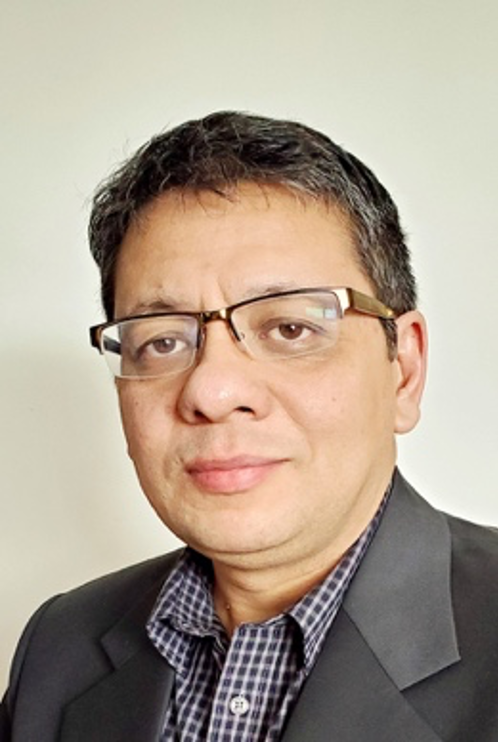
James Joshi
University of Pittsburgh, USABio - James Joshi is a professor of School of Computing and Information at the University of Pittsburgh, and the director/founder of the Laboratory of Education and Research on Security Assured Information Systems (LERSAIS). From 2019 – Aug 31, 2023, he served as a Program Director in the Computer and Network System (CNS) division and its Secure and Trustworthy Cyberspace (SaTC) program at the U.S. National Science Foundation. He currently serves as an “Expert” in the NSF Directorate of Technology, Innovation and Partnerships (TIP). He also served as the Co-Chair of the Privacy Interagency Working Group of the Networking and Information Technology R&D (NITRD). He is an IEEE Fellow, an ACM Distinguished Member, and an IEEE CS Golden Core member. His research is focused broadly on cybersecurity and privacy areas including advanced access control models, security and privacy of distributed systems and AI/ML, and trust management. He had served as the Editor-In-Chief of IEEE Transactions on Services Computing.
Panelists (Last Names in Alphabetical Order)

Sandeep Gopisetty
IBM Research - Almaden, USABio - Sandeep Gopisetty is a Distinguished Engineer and Director of Data for AI Models in IBM Research. Sandeep is a trailblazing leader in the field of data management for AI models, renowned for his visionary approach and exceptional expertise. With over 25 years of experience at the forefront of technology and data science, he has played a pivotal role in shaping the landscape of AI and machine learning. Sandeep has been leading the effort of Governance in Data recognizing the importance of data ethics and compliance. Sandeep is playing a crucial role in establishing robust data governance frameworks. His work ensures that AI models adhere to ethical guidelines and legal requirements, fostering trust in AI technologies.

Arun Iyengar
Cisco Research, USABio - Arun Iyengar is currently doing research in computer security, artificial intelligence, and distributed systems at Cisco Research. Previously, he worked at IBM Research and HP. He has also consulted for several companies and written his own financial management and market prediction system. Arun’s caching and load balancing techniques are widely used for improving performance in Web, cloud, and other distributed systems. He co-developed the first caches for large scale Web systems which formed the basis for open source caches such as memcached and redis. Arun is an IEEE Fellow, a Fellow of the Asia-Pacific Artificial Intelligence Association (AAIA), has published 10 award-winning research papers, and has received the IFIP Silver Core Award. He received his PhD and Masters degrees from MIT and his Bachelor’s degree from the University of Pennsylvania.

Surya Nepal
CSIRO Data61, AustraliaBio - Dr. Surya Nepal is a Senior Principal Research Scientist at CSIRO Data61 and the Mission Lead for Critical Infrastructure Protection and Resilience Mission. He has been working at CSIRO since 2000. His main research interest is in the development and implementation of technologies in the area of cybersecurity. He has more than 300 publications to his credit. Many of his works are published in top international journals and conferences such as ACM CCS, NDSS, ASIA CCS, RAID, ACM MM, VLDB, ICDE, ICWS, SCC, CoopIS, ICSOC, IEEE Transactions on Service Computing, IEEE Transactions on Parallel and Distributed Systems, ACM Transaction on Internet Technology, IEEE Transactions on Computers, Communications of the ACM and ACM Computing Survey. Some of his papers have received the best paper award at international conferences. His lifetime citation is 12993 (Google Scholar), with an h-index of 53 and an i10-index of 220. Dr Nepal has received several publications and invention awards at CSIRO.

Tao Zhang
NIST , USABio - Dr. Tao Zhang leads the Transformational Networks and Services Group in the Communications Technology Lab at NIST. The group has been innovating and advancing technology and standards in areas including edge (fog) computing, edge and network AI, automated driving and teleoperation, 6G networks, information-centric networking, cloud computing, and wireless localization. Before joining NIST, Dr. Zhang was the CTO / Chief Scientist for the Smart Connected Vehicles business unit at Cisco Systems, and a Chief Scientist and Director of Research at Telcordia Technologies (formerly Bell Communications Research) where he led breakthrough research on 3G/4G wireless networks and vehicular networks. He has cofounded two industry consortia—the Open Fog Consortium and the Connected Vehicle Trade Association—and served as a founding Board Director for them. More recently, he helped the industry establish the Teleoperation Consortium and has been serving on its Advisory Board. Dr. Zhang was elevated to IEEE Fellow (class 2011) for his contributions to wireless and infrastructure networking protocols for applications. He holds about 60 US patents and coauthored two books (“Vehicle Safety Communications: Protocols, Security, and Privacy” and “IP-Based Next Generation Wireless Networks”), several book chapters, and over 100 peer-reviewed papers. He served as the CIO and a Board Governor of the IEEE Communications Society and as a Distinguished Lecturer of the IEEE Vehicular Technology Society. He cofounded several international conferences and served on leadership roles for many conferences and journals.
Plenary Panel 3: Grand Challenges in Cyber Security and Privacy
Despite years of research and development, cybersecurity and privacy continue to be significantly growing concerns in our increasingly complex digitally enabled world as demonstrated by various recent of cybersecurity and privacy incidents (e.g., ransomware attacks, identity theft, misinformation propagation, etc.) that have had huge financial implications and adversely impacted people and communities in many ways. There is also increasing fear of rapid advances in computing and technologies posing threats to democratic foundations as cybersecurity and privacy incidents could lead to violation of basic democratic principles such as right to privacy, and civil rights and liberties, as well as human rights, in addition to significant other potential damages (e.g., economic or financial losses, impact on reputation and health, national security, etc.) that they incur on individuals and society at large. This panel convenes a distinguished group of panelists to debate on the grand challenges and related issues around cybersecurity and privacy. Some key questions that the panelists are asked to share their thoughts around are as follows:
- What are your thoughts on the current state of cybersecurity and privacy? In particular, please share any thoughts on how research and development in cybersecurity and privacy have kept up with the rapid developments in computing and information technologies? Any thoughts on what has worked and what has not in terms of effective cybersecurity and privacy solutions?
- What worries you the most about the cybersecurity and privacy related issues?
- What do you see as the grand challenges in Cybersecurity and Privacy that research community should focus on – both in the short term as well as long term; and considering fundamental, use-inspired or translational research?
- How to foster interdisciplinary research that enables close interaction among researchers and practitioners from computing/technology, socio-economic, legislative and regulatory areas – in particular - given that the legislative and regulatory bodies are actively pursuing/proposing new laws and regulations in this space? Any suggestions to funding agencies and industry?
Panel Moderator

James Joshi
University of Pittsburgh, USABio - James Joshi is a professor of School of Computing and Information at the University of Pittsburgh, and the director/founder of the Laboratory of Education and Research on Security Assured Information Systems (LERSAIS). From 2019 – Aug 31, 2023, he served as a Program Director in the Computer and Network System (CNS) division and its Secure and Trustworthy Cyberspace (SaTC) program at the U.S. National Science Foundation. He currently serves as an “Expert” in the NSF Directorate of Technology, Innovation and Partnerships (TIP). He also served as the Co-Chair of the Privacy Interagency Working Group of the Networking and Information Technology R&D (NITRD). He is an IEEE Fellow, an ACM Distinguished Member, and an IEEE CS Golden Core member. His research is focused broadly on cybersecurity and privacy areas including advanced access control models, security and privacy of distributed systems and AI/ML, and trust management. He had served as the Editor-In-Chief of IEEE Transactions on Services Computing.
Panelists (Last Names in Alphabetical Order)
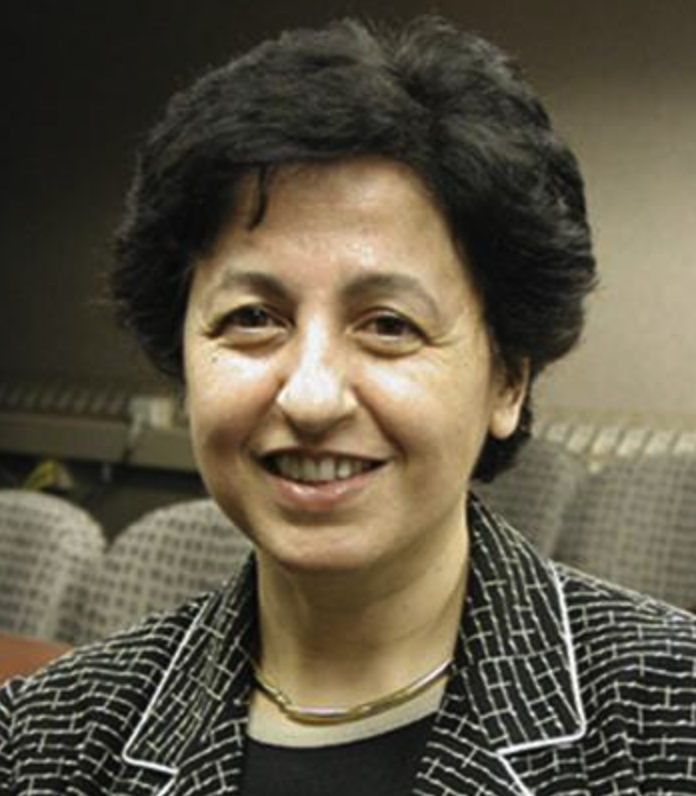
Elisa Bertino
Purdue University, USABio - Elisa Bertino is currently a Professor of computer science at Purdue University, West Lafayette, IN, USA. Her recent research focuses on security of 4G and 5G cellular networks, the IoT security, digital identity management, and policy systems. She is a fellow of IEEE, ACM and AAAS. She received the IEEE Computer Society 2002 Technical Achievement Award, the IEEE Computer Society 2005 Kanai Award, the ACM SIGSAC Outstanding Contributions Award, and the 2019–2020 ACM Athena Lecturer Award. She has served as the Chair of the ACM SIGSAC. She has served as the Editor-in-Chief for the IEEE Transactions on Dependable and Secure Computing.
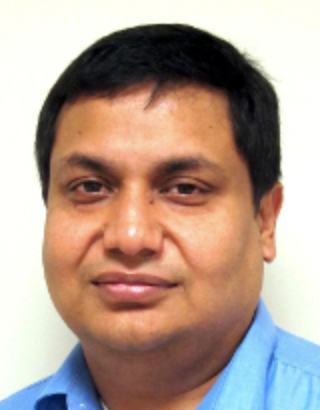
Anupam Joshi
University of Maryland Baltimore County, USABio - Anupam Joshi has been a Professor of Computer Science and Electrical Engineering (CSEE) at the University of Maryland, Baltimore County (UMBC) for more than a decade. He is currently the chair of the CSEE department, and is the Director of the UBMC Center for Cybersecurity and the Cyberscholars Programs. He has earlier served as a Co-Director of the NCCoE FFRDC, NIST. He is an IEEE Fellow, and his research has explored security, trust and privacy from a declarative, policy driven and semantically rich approach, and AI seurity. Dr. Joshi has published over 175 technical papers, and obtained research support from a variety of federal (NSF, NIST, DARPA, DoD, …) and industrial (IBM, Microsoft, Northrop Grumman, Qualcomm, Lockheed Martin, …) sources. He holds a Ph.D. in Computer Science from Purdue University, and a B. Tech in EE from the Indian Institute of Technology, Delhi.

Vladimir Kolesnikov
Georgia Institute of Technology, USABio - Vladimir Kolesnikov is a professor at Georgia Institute of Technology working in the area of cryptography and security. Prior to this appointment he was a researcher at Bell Labs, which he joined in 2006 after receiving his Ph.D. at the University of Toronto. His main current research interest is improving and applying secure computation and crypto techniques in practice. He is known for his work on garbled circuit, garbled RAM, ZK proofs and applications. He is also interested in blockchain, database security and privacy, key exchange and channel security. He has been involved in the design and analysis of Smart Grid networks, Storage Area Networks, wireless and biometric authentication, and other secure systems. He received Best Paper award at Eurocrypt 2022 for his work on garbled RAM. His work has been supported by grants and contracts from DARPA, IARPA, ONR, NSF, and Sandia Labs.

Elaine Shi
Carnegie Mellon University, USABio - Elaine Shi is an Associate Professor at Carnegie Mellon University. Prior to joining CMU, she taught at Cornell and the University of Maryland. She a Packard Fellow and a Sloan Fellow, Her research interests include cryptography, security, algorithms, mechanism design, and foundations of blockchains. She has won numerous awards such as the Sloan Fellowship, the Packard Fellowship, the ONR YIP award, the NSA Best Science of Cybersecurity Paper award, Cylab Distinguished Alumni Award, and various other best paper awards. Her work on Oblivious RAM and privacy-preserving algorithms have been deployed at a large scale by companies like Signal, Google, and JP Morgan.